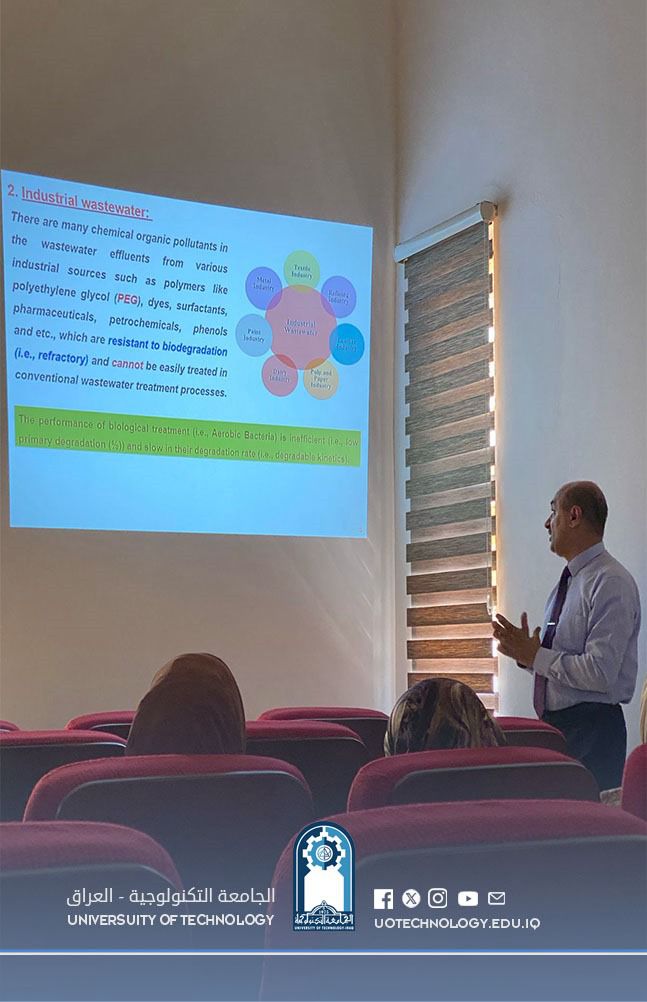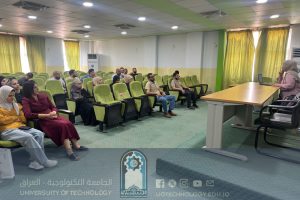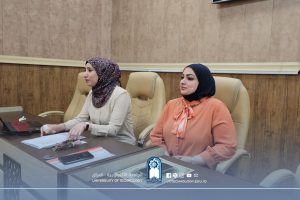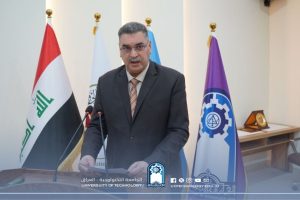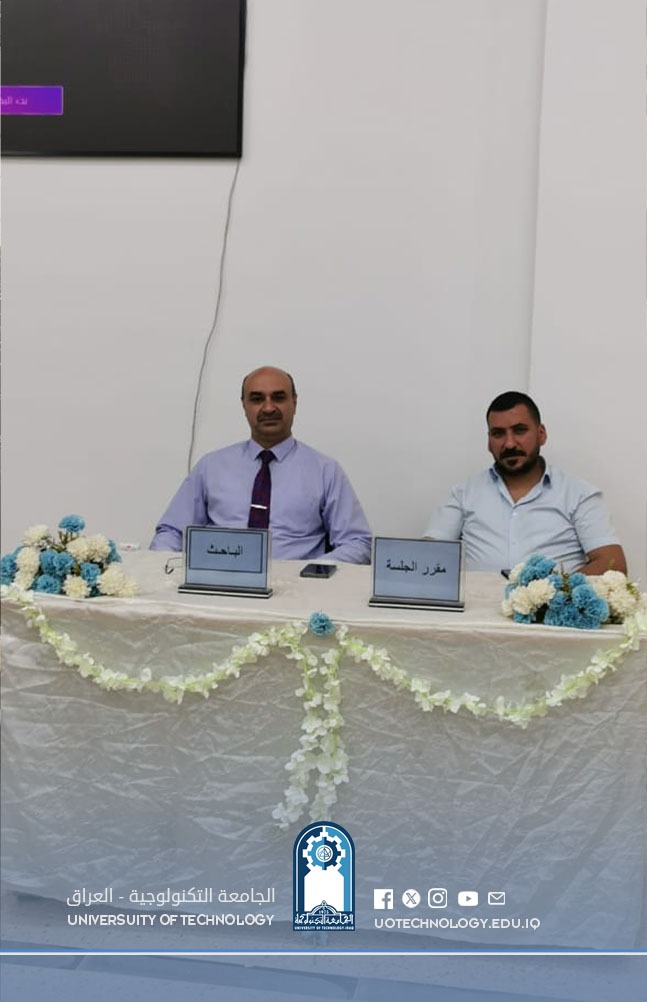
Environmental Research Center Holds Scientific Lecture Highlighting Industrial Pollutants Resistant to Treatment
As part of its cultural season activities, the Environmental Research Center at the University of Technology organized a scientific lecture titled “Pollutants Resistant to Conventional Treatment Methods: Polyethylene Glycol as a Case Study,” attended by faculty and staff of the center. The lecture, delivered by Assistant Professor Dr. Mokhlid Amer Hussein, Head of the Environmental Pollution Department, focused on the environmental challenges posed by industrial wastewater, which often contains pollutants that are difficult to treat using conventional biological methods. Dr. Hussein emphasized that “industrial wastewater poses a real threat to aquatic environments due to the presence of contaminants resistant to biological treatment, which remains one of the most widely used methods for treating wastewater.” He pointed out that one of the most prominent of these pollutants is Polyethylene Glycol (PEG), a compound widely used in industries such as pharmaceuticals, detergents, lubricants, and cosmetics, making its presence common in industrial effluents. The lecture highlighted the importance of turning to advanced technologies like Advanced Oxidation Processes , which have proven effective in breaking down PEG into short-chain acids with industrial value—either for reuse or further biological treatment. The session concluded with rich scientific discussions and several constructive contributions, drawing notable academic attention.
